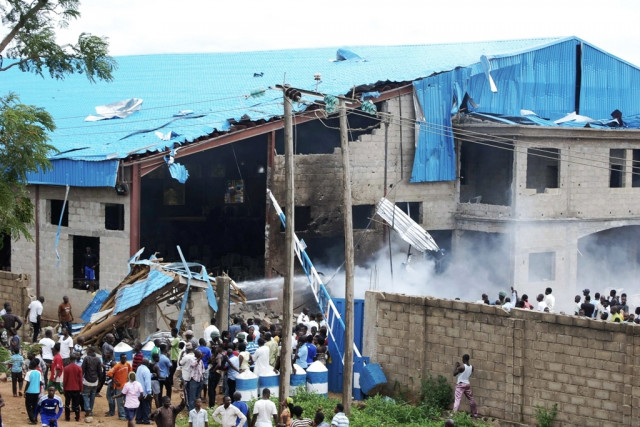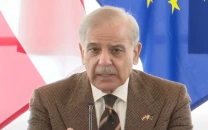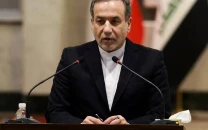Bombs kill 64 during prayers at prominent Nigeria mosque
The blasts happened at the Grand Mosque in Kano, the biggest city in the Muslim north of the country

The blasts happened at the Grand Mosque in Kano, the biggest city in the Muslim north of the country, just as Friday prayers had got under way at about 2:00 pm (1300 GMT).
The mosque is attached to the palace of the Emir of Kano Muhammad Sanusi II, Nigeria's second most senior Muslim cleric.
The blasts came after a bomb attack was foiled against a mosque in the northeastern city of Maiduguri on Friday morning, five days after two female suicide bombers killed over 45 people in the city.
"Two bombs exploded, one after the other, in the premises of the Grand Mosque seconds after the prayers had started," worshipper Aminu Abdullahi told AFP.
"A third one went off in a nearby road close to the Qadiriyya Sufi order. The blasts were followed by gunshots from the police to scare off potential attacks."
His account was backed up by another witness, Hajara Tukur, who said she lives nearby.
A senior rescue official said 64 bodies had been brought to just one Kano area hospital, while 126 people had been admitted with injuries at three facilities.
"Those figures are going to climb," he told AFP on condition of anonymity, as he was not authorised to speak to the media.
The Emir of Kano last week told worshippers at the same mosque that northerners should take up arms against Boko Haram, which has been fighting for a hardline Islamic state since 2009.
He also cast doubt on Nigerian troops' ability to protect civilians and end the insurgency, in rare public comments by a cleric on political and military affairs.
The Emir of Kano is a hugely influential figure in Nigeria, which is home to more than 80 million Muslims, most of whom live in the north.
Officially the emir is the country's number two cleric, behind the Sultan of Sokoto, and any attack could inflame tensions in Nigeria's second city, which is an ancient seat of Islamic study.
Sanusi was named emir earlier this year and is a prominent figure in his own right, having previously served as the governor of the Central Bank of Nigeria.
During his time in charge of the CBN, he spoke out against massive government fraud and was suspended from his post in February just as his term of office was drawing to a close.
Boko Haram has repeatedly attacked Kano before. On November 14, a suicide bomb attack at a petrol station killed six people, including three police.
The extremists have a record of attacking prominent clerics and in July 2012, a suicide bomber killed five people leaving Friday prayers at the home of the Shehu of Borno in the northeast city of Maiduguri.
The Shehu is Nigeria's number three Islamic leader.
Boko Haram threatened Sanusi's predecessor and the Sultan of Sokoto for allegedly betraying the faith by submitting to the authority of the secular government in Abuja.
In early 2013, the convoy of Sanusi's predecessor was also attacked.
In Maiduguri, the capital of Borno state, civilian vigilantes said they had discovered a suspected remote-controlled device planted in the Gamboru Market area of the city.
It was successfully defused by the police bomb squad but as the bomb was being made safe, another device exploded nearby. There were no casualties, as the area had been cordoned off.
"Our assumption is that the bombs were planted ahead of Friday prayers in the mosque just nearby," civilian vigilante Babakura Adam said.
"Of course, it's Boko Haram's handiwork because in the last few days several arrests have been made of suspected female suicide bombers."
Adam said the arrests were made on Wednesday and Thursday.


















COMMENTS
Comments are moderated and generally will be posted if they are on-topic and not abusive.
For more information, please see our Comments FAQ